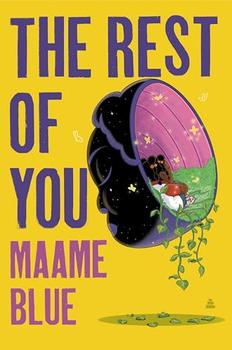Summary | Excerpt | Reading Guide | Reviews | Beyond the Book | Readalikes | Genres & Themes | Author Bio

A Mystery
by Mariah Fredericks
I was admitted to the house not by the housekeeper or the butler, but a stout woman I later discovered to be the cook. She led me up the backstairs of the house to the main hallway. As I waited, I looked down corridors and into adjoining rooms to get the measure of the house. Each room was stuffed from floor to ceiling. Persian rugs covered the floors in profusion. A frieze above the entry depicted a scene from the Bayeux Tapestry, King Harold pierced through the eye. A jumble of curios crowded every surface. Vases from China and Turkey jostled with leather-bound books and Greek statuary. A sphinx and a china pug dog peered at me from the mantel. The sitting room resembled a tent, the windows lost behind an avalanche of drapery. A museum collection of paintings and portraits hung on the walls. An English tea set rested precariously on a French ottoman. A variety of gilded mirrors reflected and extended the chaos.
The neglect hinted at by Mrs. Tyler was obvious. The mirrors were dull, the rugs stained. Dust was everywhere. Coffee cups and used ashtrays sat unattended on the mantel. The coffee drinkers were of two different temperaments: one, careless, had left the spoon in the half-filled cup; the other, fastidious, had carefully arranged the cup back in its saucer and placed the spoon beside it. The smoker, I guessed, had been a visitor. The brand of cigar was far too exotic for the Benchleys as described by Mrs. Tyler, and clearly the staff was not used to emptying ashtrays. Muddy, discarded shoes—well made, but poorly tended—lay at the fireplace and something that looked disturbingly like animal feces lurked by an armchair.
A copy of this morning's Times lay on a table next to a chair that was some distance from the others; from the depression in the cushion, I guessed the man of the house sat there. A bookmark was stuck three pages into a copy of Middlemarch. Mary Roberts Rinehart's thriller When a Man Marries was spread-eagled on top.
Hearing the thud of footsteps on the stairs, I stepped back into the hallway, and saw Mrs. Alfred Benchley.
Mrs. Benchley, formerly Miss Caroline Shaw, was a plump, anxious woman. Her tea gown was hopelessly old-fashioned: mustard yellow with lace panels on the collar that looked as if someone had slapped napkins on her shoulders. The dark brown sash had not been properly tied. A careless laundress had shriveled the ruffles at the sleeves. The pins in her hair had not been fixed at the right angle, and the back was in danger of collapsing. In the grandeur of the house, she seemed a country cousin visiting her city relations, who sigh and count the days until "dear Caroline's" departure.
"I do apologize," she said breathlessly. "Did someone let you in? Oh, yes, of course they did. Shall we speak in the sitting room?"
Sweeping into the sitting room, she remarked over her shoulder, "We are in a complete muddle. I know everyone says it, but it is so hard to find good help. I'm told girls no longer seek domestic employment; they prefer to work in shops or those dreadful factories."
It was not the first time I had heard the complaint. Mrs. Armslow and her acquaintances had also lamented the ungrateful refusal of the lower classes to employ themselves meeting the needs of their betters. Houses that used to have sixteen or more servants now made do with twelve or even nine.
I said, "It's not every young woman who finds her purpose in service to others."
"My friend Mrs. Tyler says wonderful things about you. She's been so helpful getting us settled in New York. I don't know what we'd do without her. I understand you worked for Lavinia Armslow." I nodded. "And before Mrs. Armslow?"
"Before Mrs. Armslow, I worked for my uncle, the Reverend Prescott. He…"
I hesitated. My uncle ran a home for women who once sold themselves, but wished to find different employment. Until they could, and until those who profited from their labors got tired of looking for them, they stayed at the refuge.
Excerpted from A Death of No Importance by Mariah Fredericks. Copyright © 2018 by Mariah Fredericks. Excerpted by permission of Minotaur Books. All rights reserved. No part of this excerpt may be reproduced or reprinted without permission in writing from the publisher.




Believe those who are seeking the truth. Doubt those who find it.
Click Here to find out who said this, as well as discovering other famous literary quotes!
Your guide toexceptional books
BookBrowse seeks out and recommends the best in contemporary fiction and nonfiction—books that not only engage and entertain but also deepen our understanding of ourselves and the world around us.